Share
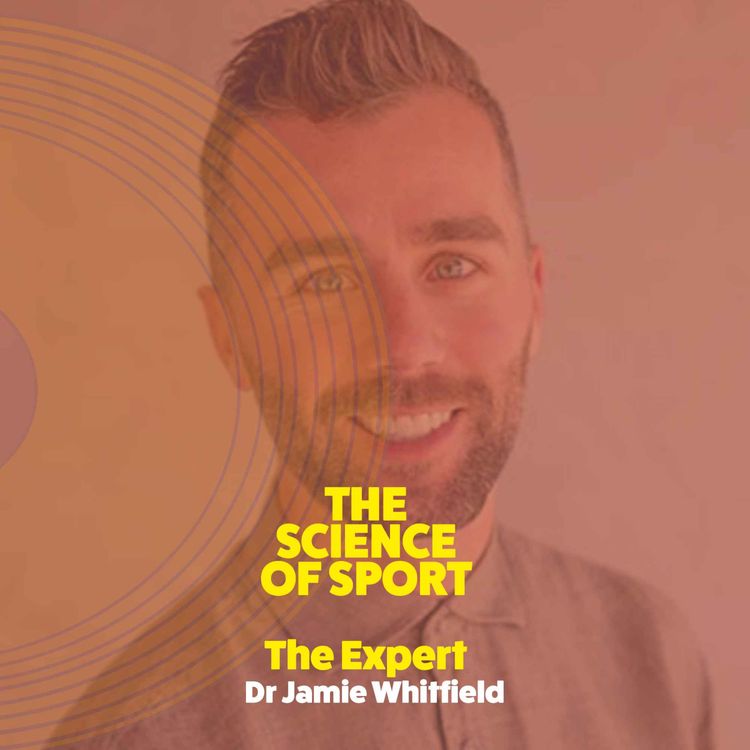
The Real Science of Sport Podcast
INTERVIEW: How to Fuel For Maximum Endurance Performance
Building on from our previous discussions on optimal fuelling for endurance exercise, in this episode we go deep into the details of why carbohydrates are the rocket fuel for our bodies, and how we can take advantage of metabolic agility and different fuel strategies to unlock performance gains. To do this, we are joined by Dr Jamie Whitfield, a postdoctoral researcher in exercise nutrition and an expert in muscle physiology and metabolism. We explore how your body ‘chooses’ whether to burn fats or carbs as fuel and which carbs it prioritizes as we change our intensity and diet. We discuss whether fasting or feasting before exercise is beneficial, and we learn whether ketogenic diets hinder or enhance exercise performance.
SHOW NOTES:
Jamie’s X account: @jwhitfie
The article by Jamie and a former guest, Prof Louise Burke, responding to Prof Tim Noakes on Keto diets and performance. The entire point-counterpoint is available at the link: https://pubmed.ncbi.nlm.nih.gov/38485731/
A research study that Jamie referred to that looked at how ingesting carbohydrates at different rates affected total carbohydrate use during exercise: https://link.springer.com/article/10.1007/s00421-022-05019-w
More episodes
View all episodes
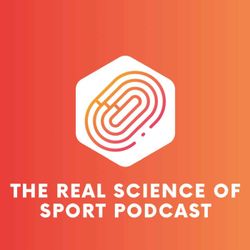
1. New Year Predictions: The Biggest Stories to Expect in 2026
01:19:37||Season 8, Ep. 1Join Mike, Ross and the chief sportswriter at The Guardian, Sean Ingle, as we look ahead to the biggest events in 2026. From the Winter Olympics to the World Cup in football, 2026 will be packed with plenty of drama and, no doubt, controversy. The team discusses the inclusion of new events at the Winter Games, how the three-country host format at the World Cup may affect results, whether the Commonwealth Games have a future beyond this year, and whether the Enhanced Games will live up to the hype. Plus, we talk about the biggest stories in track and field, cycling, swimming and golf and offer some predictions. It's the perfect way to start your sporting year.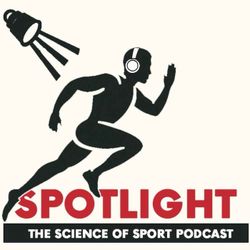
Festive Season Catch-up: What We Missed, Watched and Debated During The Holidays
01:42:41|There's a lot to catch up on today's Spotlight. Four weeks of Festive season sport means a range of topics from technology failures in the Ashes to the "Battle of the Sexes" debacle, thoughts on cyclo-cross dominance and excitement, Biathlon's appeal, Luke Littler's darts revolution, and some Enhanced Games ruminations as more athletes are announced. We also tease a few 2026 sports events, and hope you'll join us throughout the year for sports science insights and discussions.For the discussion that continues long after the podcast, become a member of the Real Science of Sport Supporters club by making a small monthly or annual donation and get access to our Discourse communityLinksArticle on the Kyrgios-Sabalenka reactionsLuke Littler's moment and the growth of dartsTechnology fails England at the AshesGareth's fascinating exploration of the not-so-simple guide to fitness (Supporters Club Members access)Stuart Phillips' paper on resistance training - just do it, and don't get stuck on the detailsMichael Ashenden on the Enhanced Games - the source of our philosophical discussion on doping in the showThe sad death of Sivert Guttorm Bakken of NorwayUSA-Canada relations are not looking good - this time thanks to a skeleton controversy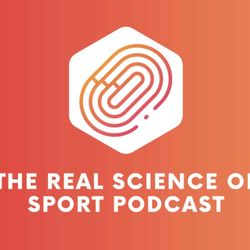
The 2025 Sport & Science Awards Show
02:13:15|As 2025 winds down, Gareth, Mike and Ross reunite to look back on a packed and fascinating year in sport and sports science in a bumper Year-end show!We pick through the highs and lows, heroes and villains, innovations and failures, revisiting the moments and stories that stood out — and those we’d rather forget. Along the way, we debate the best athletes, the greatest achievements, the biggest let-downs, and our own favourite podcasts and sports science stories of the year.We rarely agree on our picks, but through lively discussion, our definitive, decisive, utterly unmissable and questionably authoritative show brings insight, perspective and (occasionally) clarity to the world of sport in 2025!If you have enjoyed 2025 along with us, and want to show your support, you can become a Member of our Science of Sport Supporters Club by making a small monthly pledge at Patreon - think of it as buying us a cup of coffee once a month. You also get access to Discourse where you can read, or engage, with fellow listeners and point out all the great sporting achievements we missed this year! Happy holidays, and see you all in 2026!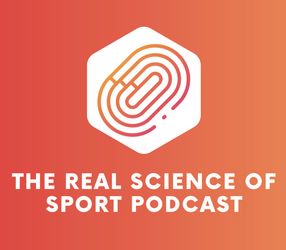
30. AIU's Brett Clothier: Catching Athletics' Doping Cheats
01:27:36||Season 7, Ep. 30The Athletics Integrity Unit (AIU) is the body established to oversee drug testing and other integrity issues within the sport of athletics and road running around the world.. Established in 2017 in response to the deepening credibility crises within International Amateur Athletic Federation (now World Athletics) doping processes, the AIU is an independent body designed to oversee drug testing among the top tier in the sport. Brett Clothier is the current head of the AIU and, in this wide-ranging interview, explains the mandate and jurisdiction of the AIU, how doping cases are investigated, how testing is done and why the recent increase in Kenyan positives is a good thing.Become a Supporter of The Real Science of Sport by making a small monthly pledge, and you also get access to our world-class community of experts and enthusiasts. Plus you get to explain sports like F1 and Squash to Gareth and Ross!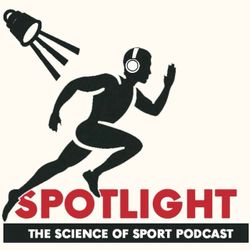
Elite Athletes and Weight Worries - GLP-1 Debates and RED-s Warnings
01:11:56|Become a Supporter of The Real Science of Sport by making a small monthly pledge, and you also get access to our world-class community of experts and enthusiasts. Plus you get to explain sports like F1 and Squash to Gareth and Ross!Show notesToday, we focus on three news pieces from last week that reminded us of other stories we covered during 2025. The first two concern weight loss and management in elite sport, beginning with a look at the GLP-1 agonist issue (28:27). This was triggered by reports in the UK advising people that they must continue to exercise, specifically weight train, in order to combat the loss of lean mass that has been observed on the drug, which some have equated with aging a decade. Elite sport, meanwhile, will have to consider whether to ban such drugs as potentially performance-enhancing or harmful.On the subject of harm, we stay on weight issues to discuss RED-s (40:10), in the light of a remarkable and candid announcement by elite cyclist Veronica Ewers that she's taking time away from the sport to address issues that she explains go back over a decade. Her story highlights all the traps - control and thoughtfulness about discipline, obsession over measurement and gadgets, disordered eating, intense training, positive validation in competitive environments, the remarkable ability of the body to tolerate this punishment, but ultimately, the sacrifice of health in a misplaced pursuit of performance. We talk about the lessons we can all learn, thinking back to Pauline Ferrand-Prevot's victory in the TDFF, which was a success story for weight periodization.We also cover precocious talent, after a three-year old Indian prodigy earned a chess ranking (1:00:40). That reminded us of Malcolm Gladwell's "compression of adolescence" concept, and we talk about the inefficiencies sport accepts in its pursuit of the next champion, highlighted numerous times this year, with the realization that the system is broken and won't be fixed unless there is a collective will be fix it.Also in this show, a more light-hearted look at the Football and Rugby World Cup draws (2:54) has us bemoaning the dilution of quality and the dearth of competitive matches early in those tournaments. And we chat about a super-fast Valencia marathon (10:43), that threw up fast winning times and nine national records, leading to a chat about globalization of the sport, the dominance of African runners, the slowest marathon nations (with some reasons), and the density of men's and women's top performers.Plus Gareth remembers that Curacao is both a drink and World Cup finalist, and Ross defends Ghana's football honour!Other linksReview article advising resistance training in people taking GLP-1 agonistsPaper that examines weight loss after 1 year of exercise or GLP-1 drugsMore in-depth look at appetite and exercise behaviours in that studyStudy finding risk for RED-s in 30% of triathletes, including the tools that can be used to identify risk factorsCycling teams paying young riders big salaries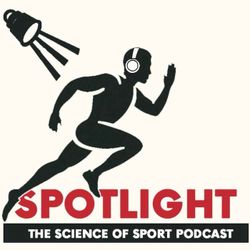
Are You Being Injured By Your Running Shoes? / Mondo Soars Again / Preventing Head Impacts / A $1400 Mattress That Does What?
01:11:37|Join the Real Science of Sport Supporters club, and get access to the sports science community where at least one person (usually many more) knows the answer to every question you can possibly ask! Plus, engage on news, training, diet, and other sports science related topics with fellow listeners! A small monthly pledge makes you a Supporter, and the Science of Sport Community awaits!Show notesToday on the Spotlight, we kick off with a chat about whether your running shoes are causing injuries (4:24). This, after a former elite runner has sued Nike for an injury she claims was the result of running in carbon fiber plated footwear. Ross and Gareth talk about the complexity of running injuries, why proving a single cause is a near-impossible task, but why the claim is not necessarily a total no-hoper, given what we know about injury and these particular shoes. We look back at some precedents, sort of, where shoe companies have settled after claims, but with some very important subtle differences.We then shift to Track and Field for a pair of stories (32:29). World Athletics crowned their Athletes of the Year this week, with Mondo Duplantis and Sydeny McLaughlin-Levrone taking the overall honours. We throw some praise Mondo's way, and not because he's virtually unbeatable and playing with the World Record. We also discuss Grand Slam Track, which is surely in its final days after the depth of its latest financial hole were announced, and Track and Field Athletics, whose supposed demise may have been greatly exaggerated (37:23)We finish with a couple of contact sports stories. Ross co-authored a paper he thinks could transform how Rugby Union handles contact training to minimize head impacts (47:40). And we spotlight listener Petulant Skeptic, whose insights on infections and hand-washing in hospitals shed light on Guardian caps and reducing concussion risk (58:39).Oh, And Finally, Ross has a tale about a mattress that will do things you simply won't believe. Or at least, you shouldn't!Links to some articlesFormer elite runner sues Nike after being injured in AlphaflysIt's not all frivolous - this paper suggests a possible injury riskInjuries are multifactorial and very complex as this Umbrella Review makes clearOne of the papers I published with Dr Nic Tam on barefoot running, showing that even 8 weeks of supervised progression didn't turn us all into smooth barefoot runners, and may thus increase injury risk for manyVibram settled - not for causing injury, but for false claimsReducing full contact training in Rugby barely reduces head impacts in elite men's players - the paper we discussedThe outstanding post by Petulant Skeptic on what infection and handwashing may tell us about Guardian caps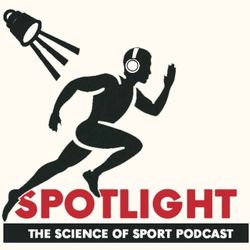
Mediocre Male Beats Strong Women, But Justice Prevails / Should XC Running Be In The Winter Games? / Concussion Prevention Illusions
56:20|Join The Real Science of Sport Supporters Club by making a small monthly pledge at Patreon.com. Think of it as buying us a cup of coffee before you listen to us opine on sports news and science! Plus, get access to the best sports science conversations in the world!07:35 - XC at the Winter Games?17:40 - UK Athletics and the cost of FACT22:35 - Mediocre Male Beats Strong Women29:55 - Do Guardian Caps work?39:55 - And Finally - Fine margins in sport & 2 day testsShow notesToday on Spotlight, a news show that begins with a brief look at our recent interview with Travis Tygart, the USADA CEO. Gareth raises an interesting question about USADA's partnership with its athletes and perceived impartiality, and Ross reflects on some of Tygart's strong views.Sebastian Coe is trying to get Cross Country running into the Winter Olympics. It's not on snow or ice, so the Winter Games family are not all that enthusiastic. It would bring new nations to the medal table, but where should the Games draw the line at expansion?Then it's on to some news from the always controversial world of sex in sport. UK Athletics have encouraged all their female athletes to get the SRY screen done to ensure eligibility for women's sport. A good step, but one that comes at a financial cost to the athlete.it's a cost that many would consider worth incurring to protect women's sport, as demonstrated by this week's controversial victory, and then disqualification, of a male in the World's Strongest Woman event in Texas. We pick up on some views expressed by listeners to discuss the relevance of this story, and how Official Strongman, the organization in charge, reacted swiftly and decisively to correct the wrong.Onto the NFL next, for a brief chat about Guardian caps. Promoted as reducing concussion risk by 50%, these soft-shell devices don't appear to have a plausible mechanism by which work, based on recent published research. This leads us to talk about the dilemma faced by sports authorities, who often throw everything they think works at the problem, but can't do robust, quality science to know what might, or might not, be workingAnd finally, we speak about the tiny margins between success and failure, sliding doors moments in sport, and take a brief look at why Test cricket just isn't what it used to be!
28. US Anti-Doping Chief Travis T. Tygart: Inside The Politics and Fight Against Doping
01:45:09||Season 7, Ep. 28Support us on DiscourseDiscourse is our "sponsorship", our sole source of income. But it's way more than that - it's a community of experts and enthusiasts who share knowledge on everything sports science related. To become part of that, become a Patron of the site and join the conversationTravis T. Tygart is one of the most outspoken and controversial figures in anti-doping. As the Chief Executive Officer of USADA (the United States Anti-Doping Agency), Tygart has played a significant role in bringing athletes like Lance Armstrong to book, worked alongside federal authorities to investigate the international steroid bust during Operation Raw Deal and uncovered the international doping conspiracy involving the BALCO laboratory in San Francisco. Tygart also led the investigation into the U.S. Postal Service pro-cycling team doping conspiracy and spearheaded the publication of the Reasoned Decision in the Armstrong case. Tygart has also led the international effort to advocate for justice and reform in the aftermath of the Russian state-sponsored doping scheme. Tygart has worked for USADA for over 22 years, and his ongoing war of words with WADA (the World Anti-Doping Agency) has frequently been reported in international media.In this wide-ranging interview, Tygart breaks down USADA's role in policing doping offenders in the United States and around the world, and explains how the US anti-doping system works and differs from those of other countries. Tygart also explains how the passing of the US's Rodchenkov Act - which grants broader powers to anti-doping officials - has been a game-changer, how doping investigations are handled, why WADA is not doing enough to fight the good fight and why it also needs to re-examine the levels at which some drugs are measured to ensure that innocent athletes are not caught up in the net.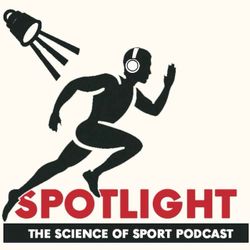
A Deeper Insider Look at Fatigue and Pacing / Why High Carbohydrate Intake Works - It's Not Fuel Depletion / A Heat Condundrum
01:16:13|In this Spotlight, we pick out some of the sports science topics that our listeners are sharing in our Discourse community. You can become a Real Science of Sport Supporter here, and a small monthly pledge gets you access to the community that discusses today's, and many other, topics!(00:00) We begin with a look at some of the reaction to our most recent podcast on Endurance, and the Central Governor. Listener reaction and accounts of their experiences stimulate conversations about the hostilities and fights in academia, the difference between "belief" and "knowledge", failures of pacing leading to heat stroke, and how to recover from a pacing mistake when it happens in your races and training. We also learn about how physiology, for many years, views performance through a 'failure' lens, rather than regulation, and what this means for how we understand training and performance.(46:09) A new research study has again confirmed that high carbohydrate intake is the way to go, improving our running economy and unlocking potential performance gains similar to those of super shoes. We link pacing and regulation to this paper by pointing out that carbohydrates are not working by delaying fuel depletion, or sparing carbohydrates, but rather changing exercise intensity and our ability to run higher paces for longer.(57:53) Our Supporters Club have also been sharing thoughts about the challenge of endurance sports in the heat, which affects not only body temperature, but also fuel use (more carbs) and compromises carbohydrate delivery to the muscles. A triple challenge, confirmed by a new study that shows that we tolerate and extract fewer carbs in the heat.And Finally (1:03:15), Ross is planning his own heat challenges, having entered a mountain bike race in the peak of South Africa's summer. With temperatures expected to soar above 40C, heat adaptation and fuelling will be tested, and he discusses his general approach and promises to share more in the coming weeks!